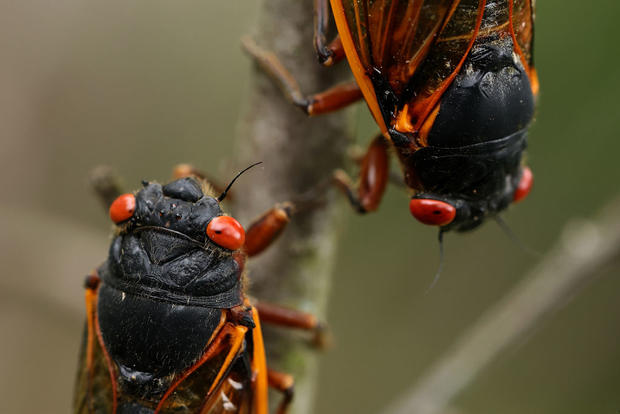Pets Eating An Occasional Cicada Is OK, But Don't Let Them Overdo It
FALLSTON, Md. (WJZ) - Hear that? The Brood X cicadas are out in full force in Harford County, and local pet experts said they're getting a lot of calls from concerned pet owners after their dog or cat has eaten them.
Dogs are playful, lovable, but oftentimes, adventurous eaters.
"It would be kind of just gross if he ate one," said dog owner Kerem Polatkan.
We're talking about cicadas, the bugs that are becoming more and more plentiful in our region. The question is, are these critters dangerous to our pets.
Cicadas aren't toxic per se and they're not a vector for any known diseases however they can cause gastrointestinal upset," said Dr. Michael Gounaris, a veterinarian with Pleasantville Animal Hospital.
Dog owners are trying to keep their pets far away from the flying snack.
"She warned me that they might try to eat them. So if you see them try to go for it, prevent it from happening," said dog owner Bob Hand. "I think they've already overstayed their welcome here so I would be a little nervous if he did."
Gounaris said the live bug is less harmful than the shell.
"The exoskeleton is more of a concern than the bug itself. The exoskeleton is a hard outer shell, and it can cause abrasions and more of a mechanical problem in the G.I. tract," he said.
While cats are smaller, dogs might be more at risk after ingesting several cicadas. Gounaris said their bodies often will eliminate the excess naturally.
Depending on the size of the dog and the quantity ingested they can certainly cause gastroenteritis and signs like vomiting diarrhea nausea," he said.
The moral of the story, if your dog eats a cicada, it's not time to panic, but don't let them snack on cicadas all day.
Gounaris said on a very rare occasion, a dog or cat eating cicadas could cause an intestinal impaction and would require surgery, but most of the time, they'll just have a bellyache.




